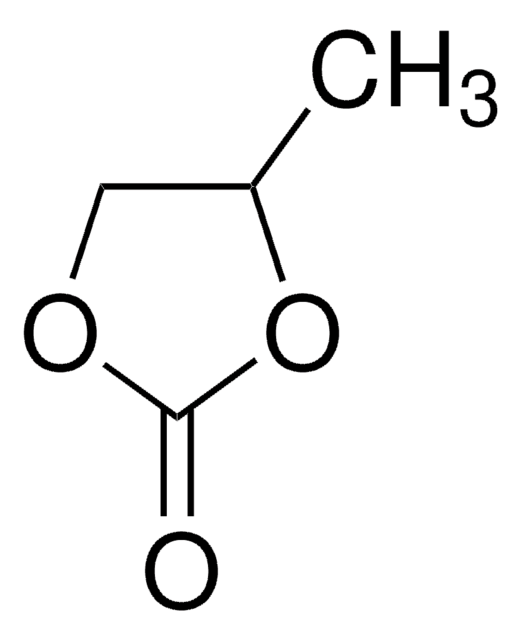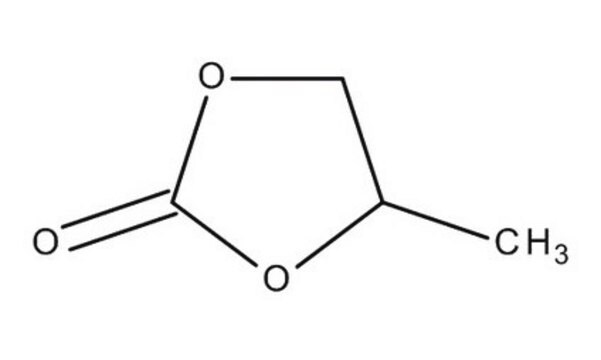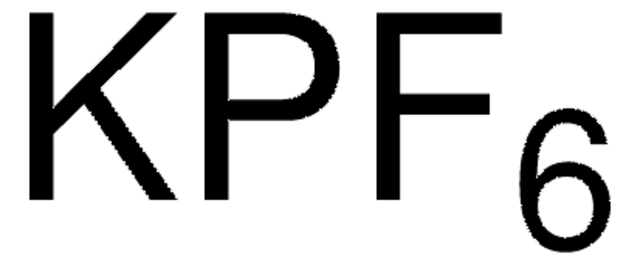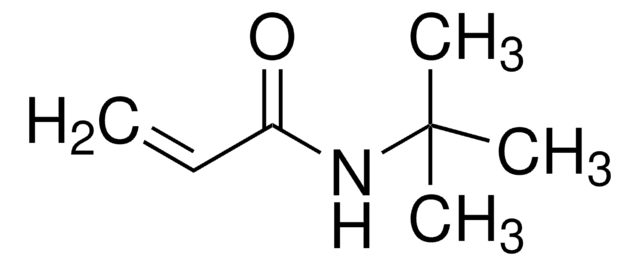P52652
Propylene carbonate
ReagentPlus®, 99%
Sinónimos:
1,2-Propanediol cyclic carbonate, 4-Methyl-1,3-dioxolan-2-one
About This Item
Productos recomendados
grado
reagent
Nivel de calidad
presión de vapor
0.13 mmHg ( 20 °C)
0.98 mmHg ( 50 °C)
Línea del producto
ReagentPlus®
Ensayo
99%
Formulario
liquid
temp. de autoignición
851 °F
lim. expl.
14.3 %
dilution
(for general lab use)
índice de refracción
n20/D 1.421 (lit.)
pH
7 (20 °C, 200 g/L)
bp
240 °C (lit.)
mp
−55 °C (lit.)
densidad
1.204 g/mL at 25 °C (lit.)
cadena SMILES
CC1COC(=O)O1
InChI
1S/C4H6O3/c1-3-2-6-4(5)7-3/h3H,2H2,1H3
Clave InChI
RUOJZAUFBMNUDX-UHFFFAOYSA-N
¿Está buscando productos similares? Visita Guía de comparación de productos
Categorías relacionadas
Descripción general
Aplicación
- Extraction of polyhydroxy alkanoates from biomass.
- Photodegradation of methylene blue.
- Synthesis of glyceryl caffeate esters via lipase-catalyzed esterification.
Información legal
Palabra de señalización
Warning
Frases de peligro
Consejos de prudencia
Clasificaciones de peligro
Eye Irrit. 2
Código de clase de almacenamiento
10 - Combustible liquids
Clase de riesgo para el agua (WGK)
WGK 1
Punto de inflamabilidad (°F)
269.6 °F - closed cup
Punto de inflamabilidad (°C)
132 °C - closed cup
Elija entre una de las versiones más recientes:
¿Ya tiene este producto?
Encuentre la documentación para los productos que ha comprado recientemente en la Biblioteca de documentos.
Los clientes también vieron
Nuestro equipo de científicos tiene experiencia en todas las áreas de investigación: Ciencias de la vida, Ciencia de los materiales, Síntesis química, Cromatografía, Analítica y muchas otras.
Póngase en contacto con el Servicio técnico










